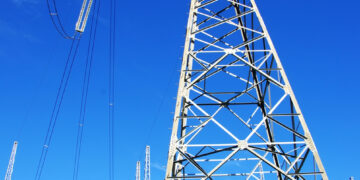The Saudi Arabian Smart Grid Sensors Market is undergoing rapid growth as the country seeks to modernize its energy infrastructure and boost grid efficiency. With a strong governmental push towards reducing energy consumption and enhancing sustainability, the implementation of smart grid sensors is accelerating. These sensors enable real-time monitoring and data collection, aiding utilities in making informed decisions, minimizing waste, and improving reliability. Technologies such as IoT, AI, and data analytics are crucial in optimizing these grid operations.
As the demand for renewable energy sources like solar and wind grows, a more intelligent grid system becomes essential. This need propels the adoption of smart grid sensors, which are vital for the integration of renewable energy into the grid. Saudi Arabia’s investment in energy infrastructure modernization ensures the continued expansion and innovation of the smart grid sensors market.
Key Trends in the Market
Renewable Energy Integration: The market is seeing a surge in the integration of renewables. Saudi Arabia aims to diversify its energy mix, reducing reliance on fossil fuels through significant renewable investments. Smart grid sensors aid in managing the variability of renewables, ensuring grid stability and reliability.
Advanced Metering Infrastructure (AMI): The deployment of AMI systems, featuring smart meters with sensors, is growing. These systems provide real-time energy consumption data, enabling consumers to manage usage efficiently and reduce costs, aligning with the government’s energy efficiency goals.
Data Analytics and AI: The integration of data analytics and AI is enhancing grid operations. These technologies allow utilities to derive insights from extensive data generated by smart sensors, improving predictive maintenance, grid optimization, and anomaly detection.
Cybersecurity and Grid Resilience: With increased digitalization, cybersecurity and resilience are becoming priorities. Efforts are underway to protect critical infrastructure through robust security measures, advanced protocols, and threat detection systems to counter potential cyber threats.
Demand Response and Energy Efficiency: Demand response programs, which balance energy supply and demand, are gaining traction. Smart grid sensors provide essential data for these programs, contributing to energy efficiency and reduced waste, supporting Saudi Arabia’s sustainability objectives.
Market Players and Scope
- Key companies include ABB Ltd., Siemens AG, Schneider Electric SE, General Electric Company, and Honeywell International Inc.
- The market covers various sensors such as voltage, temperature, and outage detection.
- Applications include AMI, smart grid distribution management, and supervisory control.
With a forecast period from 2023 to 2029, the market is expected to grow from $125 million to $351 million, at a compound annual growth rate of 18.6%.









